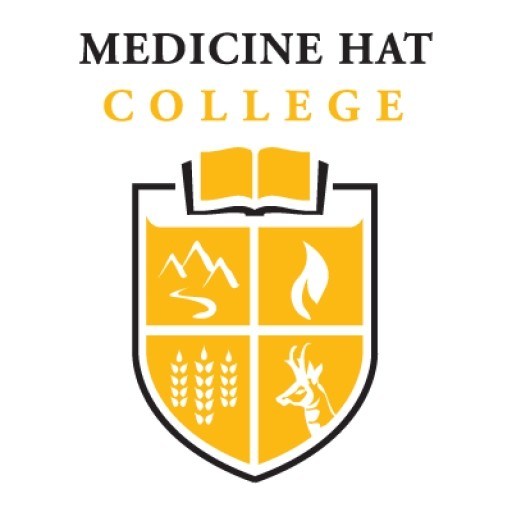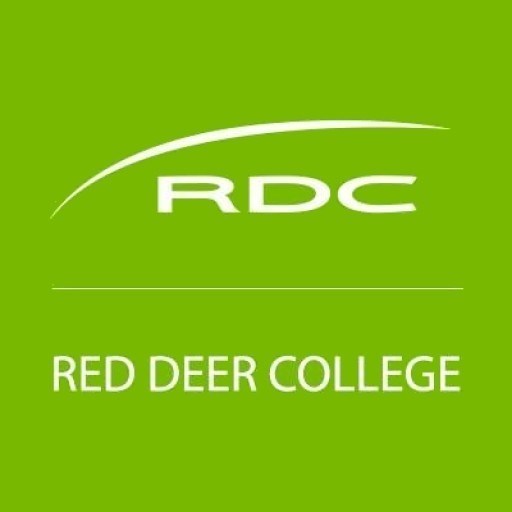Photos of university / #uwinnipeg
Pre-Veterinary Medicine at the University of Winnipeg is a preparatory program designed for students aspiring to pursue a Doctor of Veterinary Medicine (DVM) degree at a professional veterinary school. This program provides a solid foundation in the sciences, including biology, chemistry, and physics, complemented by coursework in mathematics and related fields essential for success in veterinary studies. Throughout the program, students have the opportunity to develop critical thinking, problem-solving, and communication skills necessary for the veterinary profession. The curriculum emphasizes hands-on learning experiences, including laboratory work, internships, and community engagement, to foster practical skills and a better understanding of animal health and welfare. Students are encouraged to participate in research projects and volunteer opportunities to gain real-world exposure and demonstrate their commitment to animal care and scientific inquiry. The program also supports students in preparing competitive applications for veterinary schools through advisement on prerequisites, extracurricular activities, and entrance exams such as the GRE. The faculty at the University of Winnipeg are dedicated to mentoring students and providing a comprehensive educational experience that combines academic excellence with ethical considerations and professional development. Graduates of the Pre-Veterinary Medicine program are well-prepared to continue their education at reputable veterinary schools and pursue careers in animal health, research, public health, and related fields. The program aims to foster a commitment to lifelong learning and contribute positively to society through advancements in veterinary medicine and animal welfare.
The Pre-Veterinary Medicine program at The University of Winnipeg is a comprehensive undergraduate pathway designed to prepare students for advanced study and careers in veterinary medicine. This program offers a robust foundation in the biological and physical sciences, emphasizing coursework in biology, chemistry, physics, and mathematics. Students will engage in hands-on laboratory experiences, fieldwork, and research projects that develop their practical skills and understanding of animal health, physiology, and disease. The curriculum is structured to foster critical thinking, problem-solving, and scientific inquiry, essential qualities for future veterinarians.
Throughout the program, students have opportunities to gain insights into animal behavior, animal management, and ethics related to veterinary care. The program also encourages participation in internships, volunteering, and clinical observation opportunities to enhance real-world understanding of veterinary practice. The interdisciplinary nature of the program allows students to collaborate with faculty and industry professionals, preparing them for the competitive admission process for veterinary schools.
Pre-Veterinary Medicine students will also receive guidance on graduate school applications, including assistance with research proposals, interviews, and experience documentation. The program aims to develop well-rounded candidates equipped with the academic excellence, practical skills, and professional qualities needed for successful admission to veterinary colleges and careers in animal healthcare, research, and conservation. Graduates of the program are well-positioned to pursue advanced studies at accredited veterinary schools or related fields in animal sciences and biomedical research.
Program Requirements:
The University of Winnipeg offers a Pre-Veterinary Medicine pathway designed to prepare students for admission to veterinary schools and related health science programs. To successfully complete the Pre-Veterinary Medicine track, students must fulfill a combination of coursework, academic performance standards, and extracurricular activities. Generally, students are required to complete foundational courses in biology, chemistry, organic chemistry, physics, and mathematics with a minimum grade point average (GPA) requirement, often around 3.0 or higher. These courses typically include introductory biology, general chemistry, organic chemistry, physics, and calculus or statistics. In addition to laboratory components, students are encouraged to engage in undergraduate research projects, internships, and volunteering opportunities related to animal care and veterinary sciences to gain relevant experience and strengthen their applications to veterinary schools. Students must also meet the university’s residence credit requirements, maintaining full-time enrollment status over multiple semesters, usually a minimum of 60 credit hours over two years. Furthermore, students should develop a strong record of community service, leadership, and extracurricular involvement in animal-related activities. Maintaining a competitive GPA, especially in science courses, is crucial for admission considerations into veterinary colleges. Students are advised to consult with academic advisors regularly to ensure they are meeting all prerequisites for veterinary programs and to select courses aligned with their future goals. Upon completion of the Pre-Veterinary Medicine program, students are prepared to apply to accredited veterinary schools, such as the University of Manitoba’s Western College of Veterinary Medicine or other institutions. Overall, the program emphasizes developing a solid academic foundation, practical experience, and professional skills pertinent to a successful career in veterinary medicine.
The University of Winnipeg offers a range of financial aid options to support students pursuing a Pre-Veterinary Medicine program. Financial assistance is available through scholarships, bursaries, awards, and government funding programs designed to help mitigate the costs of higher education. Entrance scholarships are awarded based on academic achievement, community involvement, and leadership qualities, and they do not require a separate application. Additionally, students may be considered for merit-based bursaries, which are awarded on the basis of financial need and academic performance.
The university encourages students to explore external funding opportunities, including provincial and federal government student aid programs such as Manitoba Student Aid, which provides loans and grants to eligible students to help cover tuition fees, living expenses, and related costs. International students, while they may be eligible for some scholarships, are often responsible for a larger portion of their educational expenses and are advised to seek out private scholarships and sponsorships.
Part-time work opportunities are available both on and off-campus, and students are encouraged to balance their employment with their studies to reduce financial stress. Co-op programs and internships related to pre-veterinary studies may offer stipends or wages, providing both practical experience and financial support. The university also offers payment plans to help manage tuition and fee payments over the academic year, easing cash flow for students.
Students are encouraged to apply early for financial aid and to consult the university’s financial services office for personalized assistance. Information about scholarships and financial support options can be found on the university’s official website, which provides detailed eligibility criteria, application procedures, and deadlines. Securing adequate funding is an essential part of planning a successful educational journey in Pre-Veterinary Medicine, and the university is committed to assisting students in accessing the resources they need to complete their studies without undue financial burden.
Pre-Veterinary Medicine at the University of Winnipeg is an academic pathway designed to prepare students for admission to veterinary school and careers in animal health and related fields. The program emphasizes a solid foundation in biological sciences, including courses in biology, chemistry, physics, and mathematics, which are essential for understanding complex biological systems and meeting the prerequisites for veterinary programs. Throughout the coursework, students gain exposure to animal physiology, pathology, nutrition, and anatomy, providing a comprehensive background in veterinary-related sciences.
The program offers both advising and preparatory courses aimed at strengthening students’ academic records and ensuring they meet the competitive admission criteria of veterinary schools, which often include a combination of GPA benchmarks, relevant clinical experience, and community involvement. Students are encouraged to engage in research projects, internships, or volunteer work within animal shelters, veterinary clinics, or research laboratories to enhance their practical understanding and strengthen their application profile.
The University of Winnipeg provides dedicated academic advisors who assist students in mapping out their undergraduate journey, selecting appropriate courses, and gaining access to extracurricular activities that enhance their veterinary school applications. Additionally, the university fosters collaborations with local veterinary clinics, farms, and research institutions, providing students with hands-on experience and networking opportunities in the veterinary field.
Although the Pre-Veterinary Medicine program at the University of Winnipeg does not confer a professional degree itself, it is strategically designed to facilitate the transition to accredited veterinary colleges in Canada and abroad. Many students pursue this pathway before applying to programs at institutions such as the University of Saskatchewan, the Ontario Veterinary College, or other veterinary schools. The program's curriculum aligns closely with the prerequisites required by these veterinary schools, thereby maximizing students’ chances of admission.
Furthermore, students are encouraged to participate in extracurricular activities such as animal rescues, conservation projects, and leadership clubs, which develop skills relevant to the veterinary profession. The university also offers workshops on graduate school applications, interview techniques, and career planning to prepare students for their next steps in veterinary education and careers.
Overall, the Pre-Veterinary Medicine program at the University of Winnipeg provides a comprehensive, supportive, and academically rigorous pathway for students committed to pursuing a career in animal healthcare, veterinary medicine, or related biological sciences. It emphasizes both academic excellence and practical experience to ensure students are well-prepared for the demands of veterinary training and professional practice.






